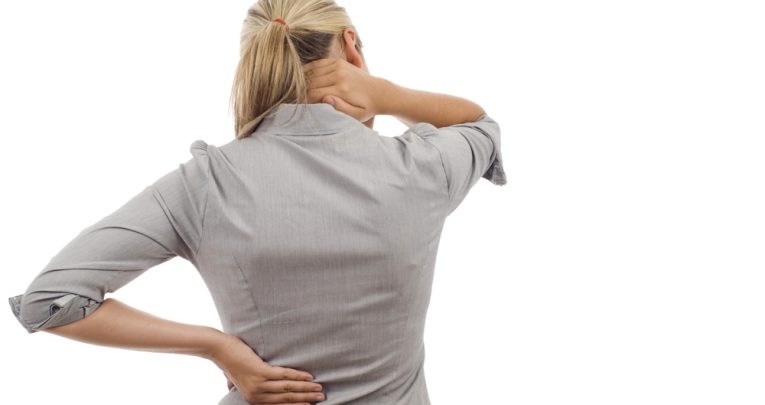A Pain In The Back – Is Your Early Years Setting Bad For Your Health?

There’s no escaping the need to lift, bend and get down to child-level if you’re an early years practitioner – but are you working in a way that will safeguard your spine? Lorna Taylor offers some advice…

- by Lorna Taylor

It’s a notoriously difficult challenge – how to ensure adults are comfortable whilst working at low heights with young children.
Trying to accommodate the health and learning needs of teachers, room practitioners, support staff and young children throughout each and every day is quite a headache! But it’s important that employers succeed, because they have legal responsibilities that can’t be ignored. Whether you’re working with children all day, or spending extended periods in the office at a computer, here are some ‘trade tips’ to address some of the most common back health challenges experienced by staff in early years settings – plus help for employers towards meeting their legal requirements. This advice will help improve staff health, comfort and reduce absence, so it’s really worth keeping in mind…
Comfortable interactions
All staff should have access to a low, mobile chair if sitting and working at low children’s tables. The discs of the spine are extremely vulnerable to the twisting and shearing forces that can occur when sitting on low static chairs or children’s furniture. It’s advisable in rooms with very low tables, where adults need to spend a period of time using the table, that a couple are lifted up with furniture raisers – clear ‘Raise Its‘ can be purchased online from various retailers. Children can also work while standing at the slightly higher tables for part of their day. Ask children to access and help tidy away their own resources, especially if they are low down, to reduce staff stooping and bending over wherever possible. It’s okay to stand upright when talking with young children at points throughout the day, too, rather than bending to their height every time.
Equipment & resources
• Lifting and carrying children, resources and equipment needs great consideration. A wheeled trolley case or crate may ease the manoeuvre of books and equipment if there are limited stairs. Use ramps to wheel equipment where available, and ensure storage sheds have ramped access, it will only take a few extra minutes and can really help your back.
• A cost-effective removable maneuvering option is to use a portable wheelchair ramp, which can be particularly useful if using shared premises. It’s also more beneficial to push trolleys, rather than pull them. • Look for equipment that is easily mobile and has lockable castors – for example, sand/water trays, cots with adjustable sides that can easily be operated by an adult, or beds/mats that enable children to climb in and out of with minimum assistance.
• Try to reduce lifting wherever possible. When changing young children, consider changing stations that incorporate steps for children to use to help reduce lifting wherever you can. • Ensure that your setting’s manual handling training has been completed and is up to date. A useful resource for organisations is the training DVD and self-assessment tool ‘BackChat – An essential Guide to Manual Handling Back and Voice Care for Early Years and Primary Education Professionals. • One other thing to keep in mind – if you are carrying a single strap bag (including a handbag) at any point during the day, wear it across your body (not on one shoulder) and swap sides regularly. Two bags of similar weight carried in each hand or a rucksack worn on both shoulders are also good options. Try to repack your bag every night so you are only carrying what you need.
Completing admin
• All early years staff should have access to an adult-height desk and chair for administration and regular computer/laptop use. If space is an issue, height-adjustable, mobile laptop tables or overbed tables are good, affordable options. • When working at a computer/laptop, the screen should be level with the top of your eyes. A screen raiser, separate mouse and keyboard will be needed if using a laptop. A height-adjustable chair is required and can accommodate a variety of users. Chair arms are only required to assist users to get in and out of a chair and are not required for use at a desk.
If chair arms are required, choose drop-down arms so they do not obstruct the user getting close to the desk. If regularly using a computer/laptop/mobile device for work, a DSE risk assessment is required by law. This explains the concept of ‘ergonomics’ and helps prevent injury. • The Healthy Working Move initiative is a free and easy place to start looking for straight-forward ergonomics advice. The Healthy Working Move online programmes offer simple and effective advice for educators, parents and children.
Don’t suffer in silence
• Back pain and emotional wellbeing are interlinked. It’s essential that you feel supported at work and feel able to voice concerns if you’re feeling cumulative strain injury (aches and pain increasing over time). If you’re finding an activity at difficult, it’s highly likely colleagues will be too. Prevention of injury is key. Rest and movement breaks are essential to health. A supportive leadership team and workplace culture are essential. Sadly, this is a challenge in itself to change, but if certain work activities are causing you discomfort, speak with your manager. There are always solutions! A risk assessment can be requested, and recommendations made and implemented that can hugely improve your working environment. Back health is important, both for you and the children in your care.
Prevention over cure
• The highest risk factor for experiencing back pain, is already having had it. This makes prevention essential!
• Staff should be comfortable before they begin an activity, and should stop and move position if they start to feel uncomfortable.
• Arrange and organise classrooms and learning environments to ensure stooping, bending over and awkward postures are reduced to a minimum. Move any bookshelves that are obstructing interactive whiteboards, ensure cupboards have clutter-free access, wash up in an adult-height sink or in a raised bowl and make sure you are supported before feeding children in your care.
Lorna Taylor is a paediatric physiotherapist and regularly provides back care education to schools and nurseries. She is also the creator of the JollyBack low mobile chair for teaching and support staff, available online via www.jollyback.com alongside a number of other furniture and cushioning solutions
For more details, visit www.childrenfirstphysio.co.uk, email lorna@jollyback.com or follow @JollyBack










